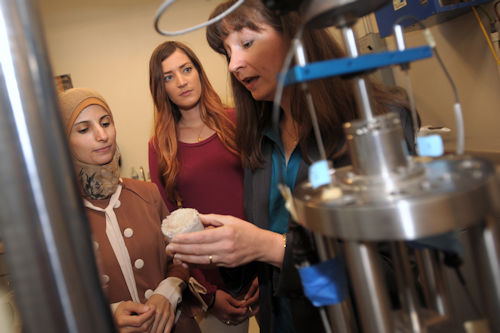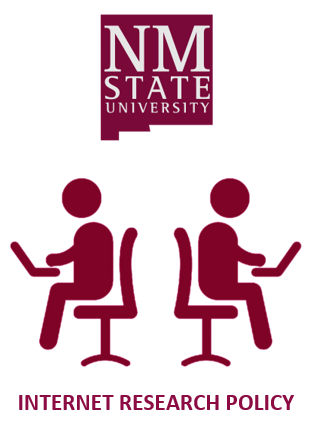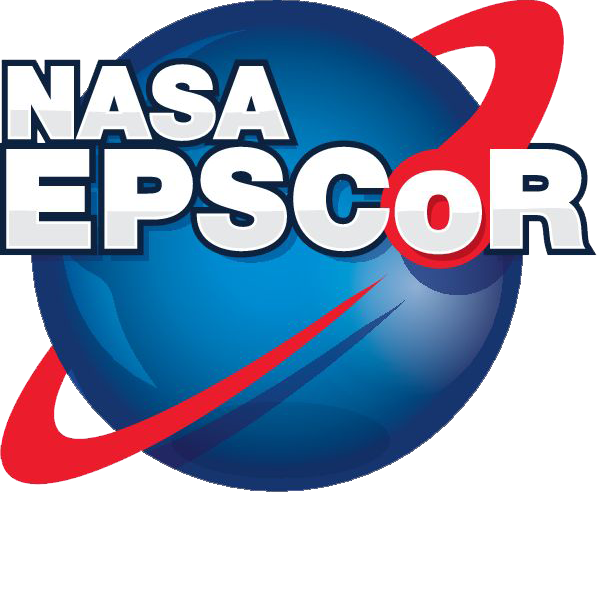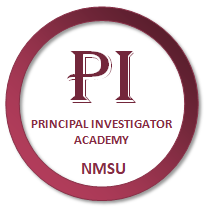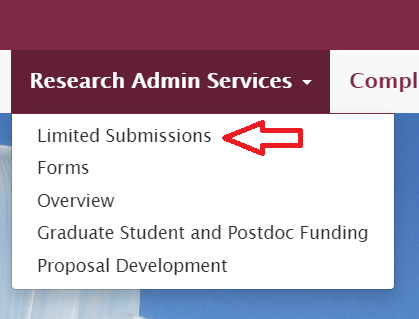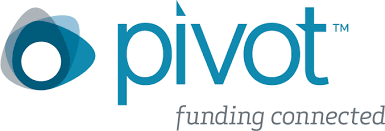 |
|
Growing Graduate Student Funding Key to LEADS 2025 Vision and GoalsBy Luis Cifuentes, Vice President for Research and Dean of Graduate School, and Luis Vazquez, Associate Vice President for Research and Graduate Studies
New Mexico State University (NMSU) LEADS 2025 vision affirmed that by 2025, the NMSU system will excel in student success and social mobility for our diverse student populations, achieve the highest Carnegie research status (R1), and maintain our Carnegie Community Engagement classification.
At the behest of NMSU president, Dr. John Floros, the LEADS 2025 Goal 2 team identified the following key performance indicators (KPIs):
as critical (key) indicators of progress toward Goal 2 intended outcomes. Each one of these KPIs are also metrics that are used to determine Carnegie research status.
Although not among the above five KPIs, NMSU’s investment in graduate education merits close scrutiny. As noted in the executive summary of The Path Forward: The Future of Graduate Education in the United States, “[t]he odds that students will remain in graduate school are affected by several factors, especially the availability of appropriate financial support.”
Currently, NMSU has 853 graduate students on graduate assistantships (many less than .5 FTE). Recently, the graduate school has been supporting graduate students through two programs developed to improve time to graduation and mitigate student debt called Graduate Student Success (GSS) and the Tuition Enrollment Incentive Reinvestment (TIER) programs. To date, 644 graduate students have been funded through these two awards. In total, awards for FY20 and FY21 contributed to the support of 1,556 graduate students, which represents less than 60% of NMSU’s current enrollment of 2,663 graduate students.
Graduate student funding at NMSU derives from both internal (I&G) and external sources, which is close to $18 M annually. External funds represent less than 50%. There are 430 PI or Co-PIs with active funding at NMSU. In turn, there are 943 members of the graduate faculty at NMSU. Therefore, on average, each PI contributes about $19 K and each graduate faculty member contributes about $8K towards graduate student funding annually. In order to increase graduate student funding levels, more PIs, especially those who are on the graduate faculty, must submit competitive grants and contract proposals, reach out to committed philanthropists for scholarships and work with industry for paid internships and research experiences that include comprehensive support for graduate students.
Let’s put these numbers in context of reaching Carnegie R1 status. For the last Carnegie research status reporting period, NMSU tallied 57 STEM, four humanities, and three social sciences doctoral degrees. What is the approximate cost of funding 60 doctoral student graduates annually? Using $30,000 per year for tuition and stipends and an average of six years to completion, graduating 60 PhDs in STEM, humanities and social sciences costs over $10 million. This is equivalent to the present I&G allocation for GAs, and represents over half of the total funding allocated yearly for graduate students at NMSU.
Owing to stagnant State funding for higher education in New Mexico and decreasing or level enrollments at NMSU, internal funding for graduate education will not increase significantly in the near future. The clear path to increased support is through external funding or gifts and endowments. A promising tactic is to make graduate student funding a larger percentage of increased research expenditures, non-science and engineering research and development expenditures and, specially, new grants over $1 million.
In closing and restating, although not one of LEADS 2025 top five KPIs, investment in graduate education at NMSU is implied and must grow to realize our LEADS 2025 Vision.
|
|
NMSU Institutional Review Board: Update on Internet Research Policy
By Michelle Gavin, Research Integrity Coordinator
To access these webinars:
If you have any questions or need assistance, please contact the Office of Research Integrity and Compliance at 575-646-7177 or email ovpr@nmsu.edu. |
|
Two NMSU Teams Funded by NASA EPSCoR Rapid Response Research Program
By Paulo Oemig, Director, NM NASA EPSCoR/NM Space Grant Consortium
NASA EPSCoR program provides seed funding to eligible institutions to enhance nationally-competitive capabilities in aerospace and aerospace-related research in EPSCoR states. NASA EPSCoR’s Rapid Response Research (R3) program competitively funds EPSCoR researchers with $100,000 for a period of one year to work alongside NASA and commercial partners on technical issues.
In this cycle two NMSU projects were selected for funding by the Rapid Response Research (R3). “Hack the Land out of Them: Obtaining Land Cover Classifications from GLOBE Observer Photographs,” is the title of the project led by Drs. Carol Campbell (Geography Department) and Parth Nagarkar (Computer Science Department). This project will utilize machine learning to characterize and label components of land cover photographs from the GLOBE land cover app. Among others, this effort will organize virtual learning workshops and bring together teams to understand the shared languages of photos, land interpretation and coding, and outline the approach to the hackathon. Recruitment will focus on participants from across the Southwest. Targeted recruiting of female and Hispanic participants from NMSU and the tribal colleges in New Mexico, in addition to programs associated with AmericaView will result in teams from locations across America.
The second project is led by Drs. Andreas Gross (Department of Mechanical and Aerospace) and Nancy Chanover (Department of Astronomy). Titled “Conceptual Design and Analysis of Aerobot for Long-Endurance Mission on Venus,” the project focuses on a conceptual design of a hybrid flight vehicle for a mission on Venus. The harsh atmospheric conditions of the planet represent a challenge, but its varied densities are an opportunity for a hybrid vehicle. The aerobot concept will manipulate different buoyancies and aerodynamic forces for navigation across horizontal and vertical layers while optimizing power requirements and allowing for fail-safe operation. The vehicle will fly above the clouds, where the sulphuric acid content is lower and the direct and reflected solar irradiance can be tapped to recharge batteries, as well as inside and below the clouds. The vertical mobility will be achieved by adjusting the vehicle’s buoyancy. The project will support two graduate students and strengthen aerospace and space exploration research in New Mexico.
Dr. Paulo Oemig can be reached at poemig@nmsu.edu.
|
|
Research Administration Spotlight: Dr. JoAnne Dupre
By Hamid Mansouri Rad, Senior Proposal Development Specialist, RAS
NMSU faculty and researchers often use biological materials in their teaching or in their research activities. The use of infectious materials is regulated for safety reasons, following federal and state laws as well as the NIH Guidelines for Research Involving Recombinant or Synthetic Nucleic Acid Molecules. NMSU has a process in place to support and ensure the safe usage of biohazardous materials. The Institutional Biosafety Committee (IBC), consisting of faculty and staff with experience in laboratory technology and public health concerns, reviews applications for the use of biohazardous materials, ensuring compliance with regulatory requirements. The point of contact for questions regarding the use of biohazardous materials is Dr. JoAnne Dupre, NMSU’s Biosafety Manager, as she coordinates research oversight for programs that have regulatory requirements. As the biological safety manager, she assists with inspections of laboratories that use biological agents associated with disease, and provides training and guidance on containment equipment, safe practices, and health surveillance including vaccinations for researchers who work with animals or blood-borne pathogens. She works with the VPR and Research Administration Services to maintain the research assurances and registrations with federal agencies, for example, NIH for the IBC reviews; USDA-APHIS (Animal and Plant Health Inspection Service), and PHS-OLAW (Office of Laboratory Animal Welfare) for animal activities; and PHS-ORI (Office of Research Integrity) for research misconduct issues such as plagiarism or falsification of data.
In addition to managing NMSU’s biosafety issues, Dr. Dupre is also the university’s Export Control Officer, ensuring NMSU’s compliance with US State Department’s regulations, and guiding NMSU faculty when they need to obtain export licenses for technologies controlled for national security reasons such as defense and space applications.
Q: When did you join NMSU? NMSU is part of my life history! I first visited NMSU as a middle school student in the NM Regional Science and Engineering Fair; later, I attended as an undergraduate student in Chemical Engineering. After many years and different experiences, I returned as an adult learner to NMSU-Alamogordo, just to take a few classes for fun, and continued to finish my B.S. in Environmental and Occupational Health. I later earned my Master’s in Biology and worked at the Food Safety Laboratory, which at the time was part of Physical Science Laboratory and is now part of the College of Agricultural Consumer and Environmental Sciences. My work at the Food Safety Lab gave me several years of experience in microbiological methods and Food and Drug Administration regulatory expectations. I finished my PhD in Biology in 2010.
Q: When did you start working in the VPR office? I started as the Biological Safety Manager in October 2010, after the position was moved from Environmental Health and Safety to the VPR Office of Research Integrity and Compliance. My role as the Export Control Officer began in February 2017.
Q: What challenges do you face in your job? One challenge is keeping up with changes in the federal and state regulations that affect research, and reviewing NMSU research procedures for ways to improve communications and to provide assurances of compliance. I rely on professional organizations such as the Council on Governmental Relations (COGR) and Association of Public and Land Grant Universities (APLU), as well as colleagues here and at other research universities, to apply best practices to “how we do things.”
Q: Is there anything else you’d like to add? Yes! NMSU has so many great programs that I want to give shout-outs to. I want to mention these because each program area had personal impact on what I am doing today. Special accolades go to NMSU-A for excellent faculty and a caring community; Extension Education for 4-H programs, Master Gardeners, and great publications available to everyone; the College of Engineering and WERC for environmental engineering programs; College of Health and Social Services, and the community college Allied Health programs, that train competent professionals throughout the state; and all the research principal investigators who provide opportunities to so many students to advance in their interests and careers. I also want to acknowledge the Student Success Center Red to Green money management program, and the Wellness-WAVE Program, for vital services that contribute to a healthy university environment. I really appreciate the mission of NMSU as a land-grant university with world-class research, and I enjoy having a part in it.
Dr. JoAnne Dupre can be reached at jdupre@nmsu.edu. |
Dr. JoAnne Dupre, Biosafety Manager and Export Control Officer, NMSU |
NIH Support for Research Excellence (SuRE): Limited Submission (10 Slots Available)
By Hamid Mansouri Rad, Senior Proposal Development Specialist, RAS
National Institutes of Health has released its funding opportunity announcement for the Support for Research Excellence (SuRE), a “research capacity building program designed to develop and sustain research excellence in U.S. higher education institutions that receive limited NIH research support and serve students from groups underrepresented in biomedical research with an emphasis on providing students with research opportunities and enriching the research environment at the applicant institutions.” Principal Investigators (PI) with active NIH Research Project Grants (R01s, R35s, U01s, R21s, R00s, and R15s) are not eligible to apply for a SuRE award. Further, PIs with active SCORE grants may apply in their last year of funding. As the NIH SuRE is a limited submission, eligible NMSU applicants must notify Research Administration Services of their intent to respond to this opportunity by sending email to ras@nmsu.edu subject line: “NIH SuRE Limited Submission” to be considered on a first-come first serve basis. To learn more about this program and its requirements please visit the NIH SuRE funding opportunity page at: https://grants.nih.gov/grants/guide/pa-files/PAR-21-169.html |
|
NSF CAREER Workshop on Friday May 14, 2021
By Hamid Mansouri Rad, Senior Proposal Development Specialist
The Office of the Vice President for Research and Dean of Graduate School will hold a one-day workshop on developing effective NSF Faculty Early Career Development (CAREER) proposals on Friday May 14 from 9:00am to 4:30pm. To be eligible to apply for the NSF CAREER funding, applicants must meet the following requirements:
Applicants may submit only one proposal in each cycle and only three proposals before obtaining tenure position. |
|
Principal Investigator Academy Webinar on May 18, 2021
By Cindy Ramirez, Proposal Development Specialist, RAS
The Principal Investigator (PI) Academy will hold its final webinar for the 2020-2021 academic year from 2:00pm to 3:00pm on May 18, 2021. The webinar will be offered by Dr. Luis Cifuentes, Vice President for Research and Dean of Graduate School. To register please send email to cindyram@nmsu.edu. |
|
Limited Submission Funding OpportunitiesBy Hamid Mansouri Rad, Senior Proposal Development Specialist, RAS
Research Administration Services maintains a list of limited submission funding opportunities for NMSU research community. The list is accessible through a link on the Research website, through the Research Administration tab. NMSU users can also access the list directly on SharePoint. We encourage NMSU researchers to periodically visit the site and if they are interested in any of the opportunities to please inform us by sending email to ras@nmsu.edu. |
|
Pivot Funding Opportunity Database
This is a reminder that in order to assist NMSU faculty and staff in locating external funding opportunities, the OVPRGS has purchased a subscription to ProQuest’s Pivot software available at https://pivot.proquest.com/session/login.
To request a one-on-one or group Pivot training, send email to hamid@nmsu.edu. |
|
Graduate School |
|
Verifying Attendance, A Compliance and Student Success IssueBy Dr. Denise H. Esquibel, Associate Dean, Graduate School
|
|
Need Guidance on Securing External Funding? Contact Me!
If you are an NMSU graduate student or post-doctoral scholar needing guidance on securing external funding, please contact me at fee@nmsu.edu. Please also visit the list of current funding opportunities that I maintain and let me know if you have any questions.
Chong-Hwey Fee
|
Proposal Development Special Specialist, RAS |
Questions and comments regarding NMSU’s Research Digest should be directed to Hamid Mansouri Rad, Ph.D. at hamid@nmsu.edu, (575) 646-6429. |
|
